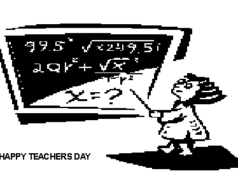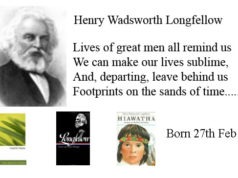John Fitzgerald Kennedy was born in Brookline, Mass., on May 29, 1917. His father, Joseph P. Kennedy, was Ambassador to Great Britain from 1937 to 1940. Kennedy was graduated from Harvard University in 1940 and joined the Navy the next year. He became skipper of a PT boat that was sunk in the Pacific by a Japanese destroyer. Although given up for lost, he swam to a safe island, towing an injured enlisted man.
After recovering from a war-aggravated spinal injury, Kennedy entered politics in 1946 and was elected to Congress. In 1952, he ran against Senator Henry Cabot Lodge, Jr., of Massachusetts, and won.
Kennedy was married on Sept. 12, 1953, to Jacqueline Lee Bouvier, by whom he had three children: Caroline, John Fitzgerald, Jr., and Patrick Bouvier, who died in infancy.
In 1957 Kennedy won the Pulitzer Prize for a book he had written earlier – Profiles in Courage.
{loadposition kennedy}
After strenuous primary battles, Kennedy won the Democratic presidential nomination on the first ballot at the 1960 Los Angeles convention. With a plurality of only 118,574 votes, he carried the election over Vice President Richard M. Nixon and became the first Roman Catholic president.
Kennedy brought to the White House the dynamic idea of a “New Frontier” approach in dealing with problems at home, abroad, and in the dimensions of space. Out of his leadership in his first few months in office came the 10-year Alliance for Progress to aid Latin America, the Peace Corps, and accelerated programs that brought the first Americans into orbit in the race in space.
Failure of the U.S.-supported Cuban invasion in April 1961 led to the entrenchment of the Communist-backed Castro regime, only 90 miles from United States soil. When it became known that Soviet offensive missiles were being installed in Cuba in 1962, Kennedy ordered a naval “quarantine” of the island and moved troops into position to eliminate this threat to U.S. security. The world seemed on the brink of a nuclear war until Soviet Premier Khrushchev ordered the removal of the missiles.
A sudden “thaw,” or the appearance of one, in the cold war came with the agreement with the Soviet Union on a limited test-ban treaty signed in Moscow on Aug. 6, 1963.
In his domestic policies, Kennedy’s proposals for medical care for the aged, expanded area redevelopment, and aid to education were defeated, but on minimum wage, trade legislation, and other measures he won important victories.
Widespread racial disorders and demonstrations led to Kennedy’s proposing sweeping civil rights legislation. As his third year in office drew to a close, he also recommended an $11-billion tax cut to bolster the economy. Both measures were pending in Congress when Kennedy, looking forward to a second term, journeyed to Texas for a series of speeches.
While riding in a procession in Dallas on Nov. 22, 1963, he was shot to death by an assassin firing from an upper floor of a building. The alleged assassin, Lee Harvey Oswald, was killed two days later in the Dallas city jail by Jack Ruby, owner of a strip-tease place.
At the age of 46, President Kennedy died leaving memories behind of a highly aristocratic soul rejuvenating spirits to face challenges ahead with courage.
QUOTES
“This nation has tossed its cap over the wall of space, and we have no choice but to follow it.” –Pres. John F. Kennedy, Remarks at the dedication of the Aerospace Medical Health, Center, San Antonio, Texas, November 21, 1963
“We set sail on this new sea because there is new knowledge to be gained, and new rights to be won, and they must be won and used for the progress of all people. For space science, like nuclear science and technology, has no conscience of its own. Whether it will become a force for good or ill depends on man, and only if the United States occupies a position of preeminence can we help decide whether this new ocean will be a sea of peace or a new terrifying theater of war… The great British explorer George Mallory, who was to die on Mount Everest, was asked why did he want to climb it. He said because it is there. Well space is there, and we’re going to climb it. And the moon and the planets are there. And new hopes for knowledge and peace are there. And therefore, as we set sail, we ask God’s blessing, on the most hazardous, and dangerous, and greatest adventure, on which man has ever embarked.” — Pres. John F. Kennedy, Sept. 12, 1962, Rice University, Houston
“I really don’t know why it is that all of us are so committed to the sea, except I think it’s because in addition to the fact that the sea changes, and the light changes, and ships change, it’s because we all came from the sea. And it is an interesting biological fact that all of us have in our veins the exact same percentage of salt in our blood that exists in the ocean, and, therefore, we have salt in our blood, our sweat, and in our tears. We are tied to the ocean. And when we go back to the sea, whether it is to sail or to watch it, we are going back from whence we came.” –Pres. John F. Kennedy, Australian Ambassador’s Dinner for the America’s Cup Crews, September 14, 1962, Newport, R.I
“Sailor, Rest Your Oar” “This nation has tossed its cap over the wall of space, and we have no choice but to follow it.” –Pres. John F. Kennedy, Remarks at the dedication of the Aerospace Medical Health, Center, San Antonio, Texas, November 21, 1963
“If more politicians knew poetry, and more poets knew politics, I am convinced the world would be a little better place in which to live.” –Sen. John F. Kennedy, Address at Harvard University, 1956







